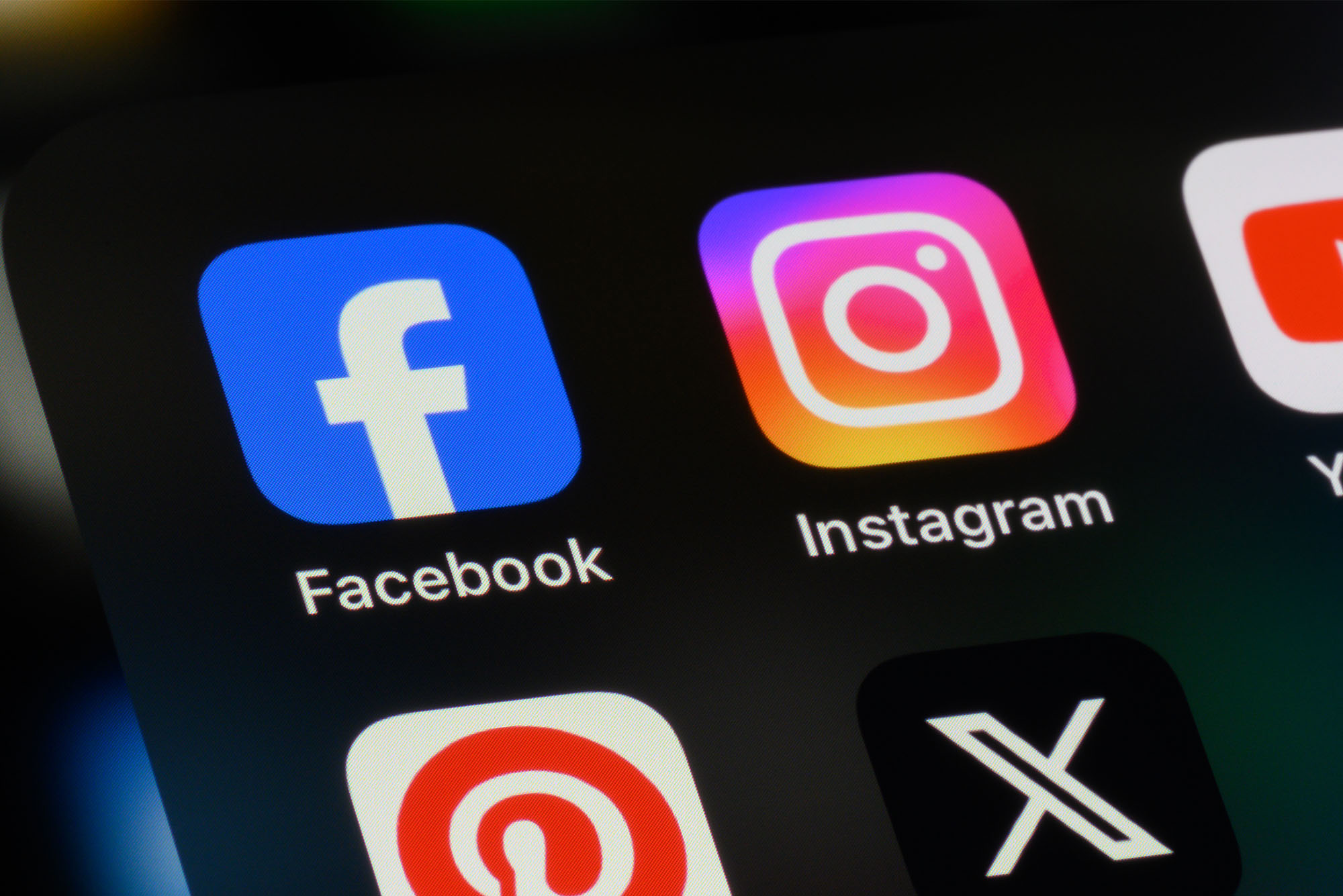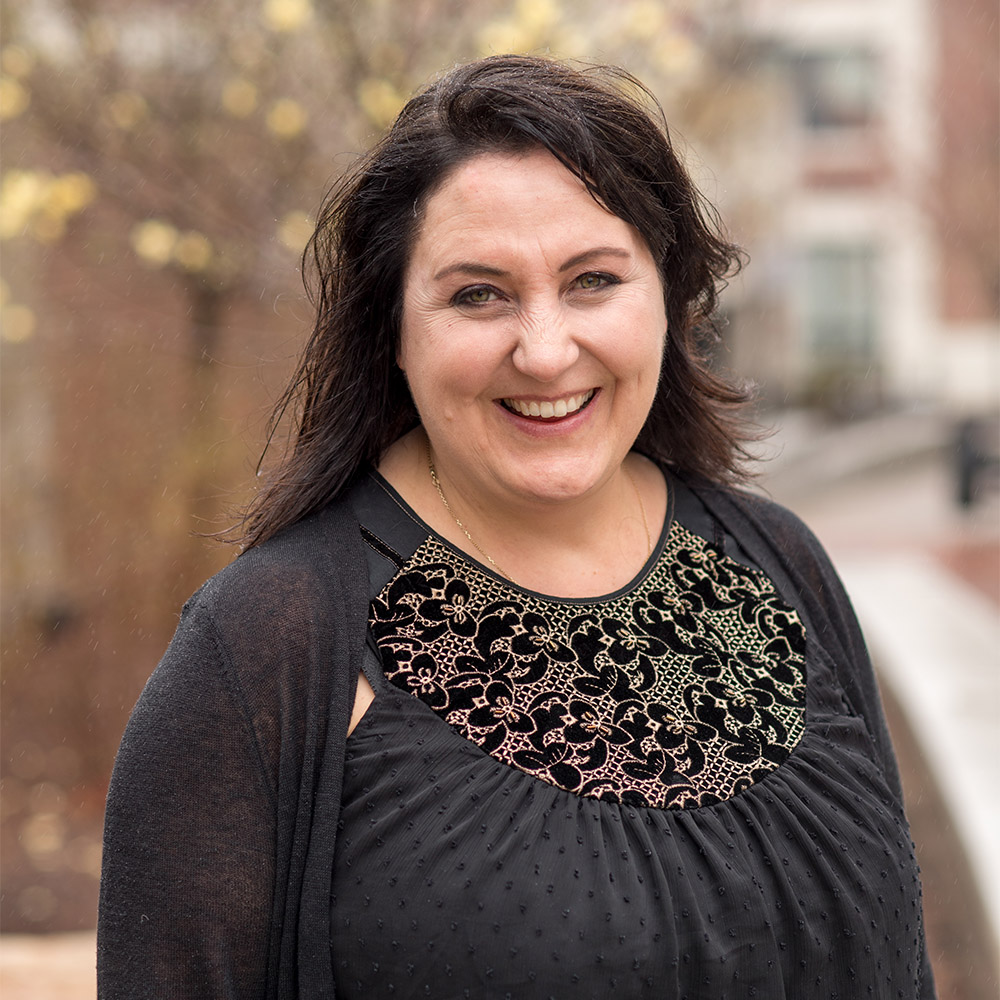Are Instagram and Facebook Addictive, Like Smoking? Lawsuit Seeks Changes

Photo via iStock/Kenneth Cheung
Are Instagram and Facebook Addictive, Like Smoking? Lawsuit Seeks Changes
As 42 states sue Meta, arguing it has “preyed on an entire generation,” SPH’s Sophie Godley says one particular change would make a big difference for young teens
Are Instagram and Facebook deliberately addictive, similar to the way smoking is deliberately addictive? That is what a group of 42 states, including Massachusetts, are arguing in a lawsuit against Meta, the parent company of the two giant social media platforms, accusing Meta of designing products that have hooked children, deceiving the public about the harms of those products, and ultimately, fueling the nation’s mental health crisis among youth—all in the interest of boosting its profits.
The attorneys general filing the lawsuit say Facebook and Instagram “exploit and manipulate” children. It’s an argument some legal experts say echoes the cases filed against Big Tobacco in the 1990s that led to strong limits on how cigarettes could be marketed.

“Meta has preyed on an entire generation of young people for profit,” Massachusetts Attorney General Andrea Campbell said in announcing the lawsuit. “The company knew exactly how [their] design decisions could and would hook young people to the point of addiction and yet continued to use them, and in many cases rejected using feasible alternatives that they knew would mitigate harm to our young people. They did all of this with profit in mind, not people, not young users.”
In response, Meta has said that it is committed to creating safe and positive online spaces for children and that it has created multiple features to support its younger users and their families.
It’s a subject that Sophie Godley, a clinical associate professor of community health sciences at Boston University’s School of Public Health, has followed closely. She has been director of the Office of Adolescent Health and Youth Development at the Massachusetts Department of Public Health, and she teaches Introduction to Public Health for undergraduates, among other courses for both graduate and undergraduate students.
BU Today spoke with Godley about the lawsuit, its implications, and the likelihood of it leading to change.
Q&A
With Sophie Godley
BU Today: Let me start with this question: if there were no COVID pandemic, would this crisis still be happening and would we be having this conversation?
Godley: I think we’d still be here. It wouldn’t be as potent, but we were well aware that some of these platforms were causing harm in our young people before COVID landed in the United States. COVID exacerbated it and children’s reliance on social media. So maybe it came to a head, but I know we were already seeing the impact on young people’s mental health, in terms of depression, anxiety, societal comparison, and the anxiety that came with all of that.
BU Today: What’s the solution? We can’t put the toothpaste back in the tube—it’s not like teenagers will stop using these platforms.
Godley: This is what we are all talking about. It’s akin to reducing the nicotine in cigarettes. Or the volume of alcohol in certain drinks. It’s there, but it’s reduced. With something like Facebook, where the entire purpose was comparison, that’s one where I have a hard time thinking we’ll ever mend it. Some other platforms, I’ll be honest, I don’t know. The way the platforms were designed, they can never not do harm.
BU Today: So are you in favor of this lawsuit—do you think it’s a good idea?
Godley: I think holding corporations accountable for damage they have done in communities is always a good idea. But I can’t say how successful it will be or how much veracity it has. I appreciate Andrea Campbell taking the lead. I am really impressed with that.
BU Today: What are some specific changes you’d like to see come out of this action?
Godley: So, a simple one is what the difference is between an advertisement and an influencer. We’ve seen the line blur. Think of it like this: “This is my opinion on an eye liner” versus “I am being paid to tell you this eye liner works.” In Europe they have much stricter guidelines on what is an ad. I think that matters a lot. These platforms have become so commercialized. If someone is pretending to be authentic, if they are being paid to say that, they should have to tell you that. An adult with a functioning prefrontal cortex is going to think, “Huh, I wonder if they are getting paid.” But a teenager might just think, “Oh, good hair dryer!” When you are marketing to kids, that crosses a line.
BU Today: Does any responsibility lie with parents here? Is blaming the social media companies entirely fair, or do parents have to own a piece of this crisis, too?
Godley: I don’t know about parents. Everyone, the community, all of us, owns a piece of it. We’ve all been a little seduced by these platforms. Many of us find them hard to put down and put away. Our young people have watched us struggle. For me, who works in this area, I see other things parents are posting about their kids, and I wonder, why am I not doing that? I should do that.
BU Today: It sounds like you are saying parents and teenagers are different, partly because their brains are different?
Godley: The issue is for developing brains, and what we now know. As parents of teens, we have a pretty simple cortex that works. I have a critical brain that can distinguish reality from curation. But young people are vulnerable. They might see that as real, and the skin in that ad really is that clear, and they are not able to see the filters. And how unproductive is it to constantly compare yourself to other people.
We have given these children a sports car before we have talked to them about training wheels. They have this powerful electronic tool and we haven’t caught up yet with: how do we help them navigate it?
BU Today: So what can communities do together?
Godley: One thing I wish we had more conversations about is the longer you can keep middle schoolers away from smartphones the better. They are toxic. A kid can go off and use it without their parents knowing about it. There is isolated navigation happening. That’s where we need a community response. That requires a whole community strategy. Some private schools have done that. Some middle schools have said, “You can’t have a cell phone.” But it only works if the whole community tries it.
Comments & Discussion
Boston University moderates comments to facilitate an informed, substantive, civil conversation. Abusive, profane, self-promotional, misleading, incoherent or off-topic comments will be rejected. Moderators are staffed during regular business hours (EST) and can only accept comments written in English. Statistics or facts must include a citation or a link to the citation.